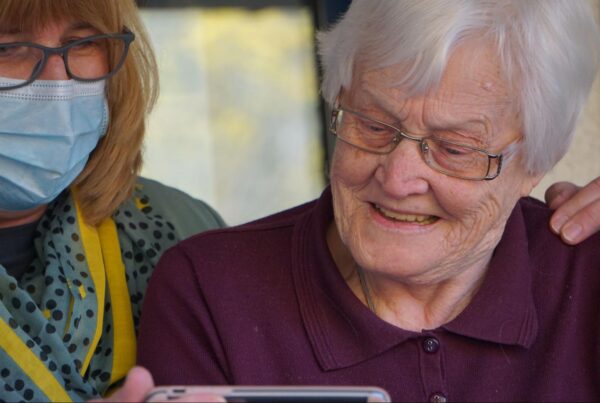Hydration for Seniors: Why Staying Hydrated is Crucial for Aging Well
Key Takeaways
- Seniors are more prone to dehydration due to age-related changes, medications, and health conditions.
- Proper hydration supports cognitive function, digestion, joint health, and temperature regulation.
- Signs of dehydration include dry mouth, dizziness, confusion, and fatigue.
- Staying hydrated can be achieved through water, hydrating foods, and setting daily fluid intake goals.
- Advanced Care helps seniors maintain proper hydration through personalized support and monitoring.
Why is Hydration Important for Seniors?
Hydration is crucial for seniors as it supports cognitive function, digestion, and overall health. Dehydration increases the risk of confusion, UTIs, and joint stiffness. Drinking enough fluids daily helps prevent complications and promotes well-being in aging adults.
Ensuring Proper Hydration for Healthy Aging
Staying hydrated is essential for maintaining senior health and preventing complications. Learn how Advanced Care provides hydration support, meal preparation, and personalized care to help seniors maintain their health and quality of life.
Proper hydration is essential for maintaining health at every stage of life, but it becomes even more critical as we age. Seniors are more prone to dehydration due to physiological changes, medication use, and lifestyle factors, making it vital to prioritize fluid intake. At Advanced Care, we understand the importance of hydration for aging well and want to share why it matters and how seniors can stay hydrated effectively.
Why Hydration is Essential for Seniors
Supports Vital Body Functions
Water is a fundamental component of the human body, playing a key role in regulating temperature, transporting nutrients, and removing waste. For seniors, staying hydrated ensures that these processes function optimally, helping to maintain energy levels and overall health.
Maintains Cognitive Health
Dehydration can affect brain function, leading to confusion, memory problems, and difficulty concentrating. Seniors are particularly susceptible to these effects, as dehydration can exacerbate age-related cognitive decline. Drinking enough water supports mental clarity and reduces the risk of confusion or delirium.
Promotes Healthy Digestion
Water aids in the digestion process by helping break down food and preventing constipation. Seniors often face digestive issues due to slower gastrointestinal motility, and proper hydration can alleviate discomfort and promote regular bowel movements.
Prevents Urinary Tract Infections
Dehydration increases the risk of urinary tract infections (UTIs), which are more common among older adults. Drinking adequate fluids flushes bacteria from the urinary tract, reducing the likelihood of infections.
Protects Joints and Muscles
Hydration is essential for joint lubrication and muscle function. Seniors who experience arthritis or muscle pain may find relief by staying hydrated, as water supports flexibility and reduces stiffness.
Aids in Temperature Regulation
Seniors are less able to regulate body temperature effectively, making them more vulnerable to heat-related illnesses like heat exhaustion or heatstroke. Adequate hydration helps maintain normal body temperature, particularly during hot weather or physical activity.
Risk Factors for Dehydration in Seniors
Decreased Sensation of Thirst
As we age, the body’s ability to recognize thirst diminishes, meaning seniors may not feel thirsty even when their bodies need water. This can lead to chronic, low-level dehydration.
Medications
Certain medications, such as diuretics or laxatives, can increase water loss, heightening the risk of dehydration. Seniors should be aware of these side effects and adjust their fluid intake accordingly.
Health Conditions
Conditions like diabetes, kidney disease, and mobility issues can make staying hydrated more challenging for seniors. Additionally, illnesses that cause vomiting or diarrhea can rapidly deplete fluid levels.
Lifestyle Factors
Reduced mobility, forgetfulness, or limited access to beverages can contribute to dehydration. Seniors who live alone or in care facilities may face additional barriers to maintaining proper hydration.
Signs and Symptoms of Dehydration
Recognizing dehydration early is critical to prevent serious health complications. Common signs include:
- Dry mouth and cracked lips
- Dark-colored urine or infrequent urination
- Fatigue or low energy
- Dizziness or lightheadedness
- Confusion or difficulty concentrating
- Rapid heartbeat or breathing
Severe dehydration can lead to serious complications, including kidney failure, heatstroke, or seizures. If dehydration is suspected, it’s essential to address it promptly.
Practical Tips for Staying Hydrated
Set Daily Hydration Goals
Encourage seniors to aim for 6-8 cups of water per day, adjusting for individual needs based on activity level, health conditions, and climate. Keeping a water bottle nearby can serve as a visual reminder to drink throughout the day.
Incorporate Hydrating Foods
Foods with high water content, such as watermelon, cucumbers, oranges, and strawberries, are excellent options for boosting hydration. Soups, broths, and smoothies also provide fluids while adding nutrients.
Flavor Water for Variety
For seniors who find plain water unappealing, adding natural flavorings like lemon, mint, or cucumber can make it more enjoyable. Herbal teas or infused waters are also great alternatives.
Monitor Medication Effects
If medications cause increased urination or fluid loss, seniors should work with their healthcare provider to develop a hydration plan. This might involve timing fluids around medications to ensure consistent intake.
Use Hydration Aids
Specialized products, such as spill-proof cups, insulated water bottles, or hydration reminders, can make staying hydrated easier for seniors with mobility or dexterity challenges.
Encourage a Routine
Establishing a daily routine for drinking fluids—such as a glass of water with each meal or a cup of tea in the afternoon—can help seniors maintain consistent hydration without needing constant reminders.
Addressing Barriers to Hydration
Mobility Issues
For seniors with limited mobility, placing water bottles or cups within easy reach can encourage regular hydration. Caregivers can also assist by providing fluids during daily activities.
Cognitive Impairment
For seniors with dementia or other cognitive challenges, frequent reminders and visual cues can help prompt them to drink water. Using brightly colored cups or tracking fluid intake on a chart may be helpful.
Aversion to Water
If a senior resists drinking water, offering alternatives like diluted juice, milk, or flavored electrolyte drinks can ensure they still receive adequate fluids.
How Advanced Care Supports Hydration for Seniors
At Advanced Care, we prioritize hydration as a key component of senior health. Our caregivers assist with preparing hydrating meals, offering fluids throughout the day, and monitoring for signs of dehydration. By incorporating hydration into daily routines, we help seniors maintain their health and enjoy a better quality of life.
Final Thoughts
Hydration is a cornerstone of healthy aging, supporting physical, cognitive, and emotional well-being. By understanding the importance of fluid intake and adopting practical strategies, seniors can prevent dehydration and its associated risks. At Advanced Care, we’re here to support seniors and their families in promoting wellness and comfort. If you’d like to learn more about how we can help your loved one stay hydrated and healthy, contact us today. Together, we can make aging well a reality.






